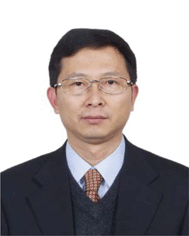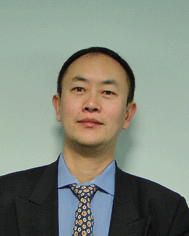Inorganic Chemistry Frontiers – a new international high-profile journal
In January 2014, at the beginning of the New Year, we are delighted to welcome you to the inaugural issue of Inorganic Chemistry Frontiers, a high-profile peer-reviewed online journal co-developed by the Chinese Chemical Society (CCS), the Royal Society of Chemistry and the College of Chemistry and Molecular Engineering in Peking University (PKU). As a member of the Frontiers Journal family, Inorganic Chemistry Frontiers aims to become a world leading journal in inorganic chemistry. The journal has a focus on novel research that has an impact – explicit applications of any reported inorganic and organometallic molecules or solids are required for publication. The journal showcases significant and cutting edge research in inorganic chemistry at the interfaces with materials science, energy, nanoscience, catalysis and bio-inorganic chemistry research.The Frontiers Journals are a collection of chemistry journals under a unique not-for-profit society partnership between the CCS and the Royal Society of Chemistry. The Frontiers journal titles will cover the main research areas in the chemical sciences. An integral part of the development of each journal is the collaboration with an internationally regarded Chinese institute in the relevant field. Each Frontiers journal is jointly owned by the CCS, the Royal Society of Chemistry and the relevant partner institute, with each owner bringing their expertise to the project. Ultimately, the aim of the Frontiers portfolio is to become a leading international journal series for the chemical sciences community.
The unique collaboration between the Royal Society of Chemistry and the CCS takes full advantage of the 170 years’ publishing experience of high-impact academic journals that the Royal Society of Chemistry brings, and the rapid growth and expanding influence of the Chinese chemistry community provided by CCS.
“China has the largest number of highly educated chemists and is now ranked among the top countries in the world in chemistry research. We are looking forward to kind support from our colleagues,” said Professor Jiannian Yao, the President of the CCS.
Inorganic Chemistry Frontiers brings together excellent international inorganic chemistry research and provides the global inorganic research community with unparalleled opportunities for global visibility and international collaboration.
In line with our vision for the journal to be the foremost platform for the dissemination of research in inorganic chemistry, international Editorial and Advisory Boards of leading researchers have been created for this new journal. Led by Editor-in-Chief Song Gao from Peking University, the Editorial Board of Inorganic Chemistry Frontiers is responsible for maintaining the scientific standard of the journal by setting the scientific criteria as well as safeguarding the high quality of accepted articles. All manuscripts submitted to Inorganic Chemistry Frontiers are handled by the Associated Editors via our fair and impartial peer-review system. The Editorial Board members who are shaping the future of the journal and driving it forward are:
Editor-in-Chief
Song Gao, PKU, China
Associate Editors
Lee Cronin, University of Glasgow, UK
Hiroki Oshio, University of Tsukuba, Japan
Oleg V. Ozerov, Texas A&M University, USA
Yi Xie, University of Science and Technology of China, China
Editorial Board members
Paula Diaconescu, UCLA, USA
Xile Hu, EPFL, Switzerland
Jaqueline L. Kiplinger, Los Alamos National Laboratory, USA
Yi Lu, University of Illinois, USA
John E. McGrady, University of Oxford, UK
Hiroshi Nishihara, University of Tokyo, Japan
Zhiping Zheng, University of Arizona, USA
The exceptional team of Editorial Board members is further supported by an international team of Advisory Board members incorporating both world renowned scientists and less senior researchers recognized as “rising stars”. To find out who is on the Advisory Board of Inorganic Chemistry Frontiers, please visit http://www.rsc.org/publishing/journals/qi/staff.asp.
By publishing with Inorganic Chemistry Frontiers, authors can not only benefit from rapid publishing but also take the best advantage of the free access that the Royal Society of Chemistry has arranged for this new journal. The first two volumes of content (2014 and 2015) of Inorganic Chemistry Frontiers will be free to access for all readers via the website – http://rsc.li/frontiers-inorganic. We therefore ensure that your publications will receive significant exposure across the widest possible audience. Furthermore, authors will have the chance to publish their research via Open Access upon payment of an article processing charge or simply deposit the author version of their manuscript for free after a one year embargo into the Chemical Sciences Repository, a non-commercial subject-specific Open Access repository for chemistry papers, maximizing the visibility and impact of their work. (More information about the Chemical Sciences Repository is available at http://www.rsc.org/Chemical-Sciences-Repository/articles/.)
Inorganic Chemistry Frontiers publishes a full range of articles including critical reviews, communications and full papers. In order to give authors more flexibility to present their results, there are no page charges or strict page limits for any Inorganic Chemistry Frontiers articles.
The articles included in the very first issue of Inorganic Chemistry Frontiers cover the main research areas and have come from researchers around the world, attracted by the journal's aims of speed, high quality and visibility. The subjects vary from coordination chemistry to the study of optical properties, from inorganic nanomaterials to bioinorganic chemistry, from catalysis to supramolecular chemistry and from organometallics to coordination networks. We hope you have enjoyed reading this first issue and the quality of the articles has met your expectations for a top-tier international journal in the field of inorganic chemistry. Please note that when you cite Inorganic Chemistry Frontiers articles, the correct journal abbreviation is simply Inorg. Chem. Front.
We would encourage you to sign up to the free journal news alert to receive information about the most read papers, themed issues, journal news, as well as calls for papers and invitations. The simple registration process can be completed on http://rsc.li/alerts. Hopefully you will be convinced by our vision for the journal, and will consider publishing your future research with Inorganic Chemistry Frontiers (http://mc.manuscriptcentral.com/inorgcf). Any comments from you about the journal will be greatly appreciated and we invite you to contact us at E-mail: InorgChemFrontiersED@rsc.org.
We look forward to your contribution and wish you a successful and exciting 2014!
| This journal is © the Partner Organisations 2014 |


